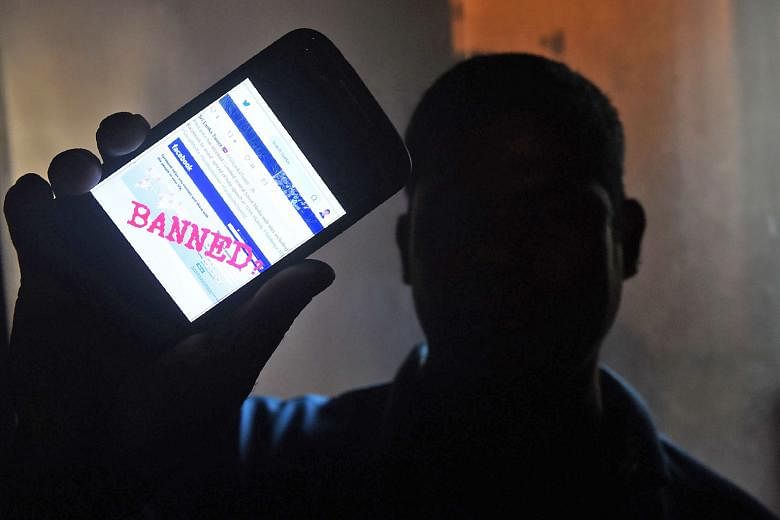COLOMBO • Sri Lanka shut down social messaging networks including Facebook yesterday to control violence targeted at the Muslim minority, officials said, even after the declaration of a state of emergency in the Buddhist-majority island.
Tension has been growing between the two communities in Sri Lanka over the past year, with some hardline Buddhist groups accusing Muslims of forcing people to convert to Islam and vandalising Buddhist archaeological sites, Reuters reported.
Some Buddhist nationalists have also protested against the presence in Sri Lanka of Muslim Rohingya asylum seekers from mostly Buddhist Myanmar.
Police clamped an indefinite curfew on the central district of Kandy, where the violence has been centred since Sunday following the death of a Buddhist youth in an altercation with a group of Muslims.
Buddhist mobs attacked mosques and businesses belonging to Muslims overnight, even after President Maithripala Sirisena imposed a state of emergency for seven days on Tuesday to control the violence.
Police spokesman Ruwan Gunasekara said there had been "several incidents" throughout Tuesday night in the Kandy area, famous for its tea plantations. "The police arrested seven people. Three police officers were injured from the incidents," he told Reuters.
Yesterday, the government said Facebook, Viber and WhatsApp would be blocked across the country for three days.
Sri Lanka is still healing from a 26-year civil war against Tamil separatists that ended in 2009, with reports of rights abuses on both sides. Muslims make up 9 per cent of the 21 million population, the smallest minority after ethnic Tamils, most of whom are Hindus.
United Nations rights chief Zeid Ra'ad al-Hussein said he was alarmed by the recurring episodes of violence against ethnic and religious minorities in Sri Lanka and sought accountability.
Foreign governments, including the United States and Britain, have issued travel warnings following the declaration of a state of emergency, Agence France-Presse reported.
In a travel advisory yesterday, the Ministry of Foreign Affairs said Singaporeans are advised to defer all non-essential travels to Kandy until the situation stabilises.
Singaporeans in Kandy are advised to exercise vigilance, take all necessary precautions for their personal safety, monitor the news closely and heed the instructions of the local authorities, the advisory said.

